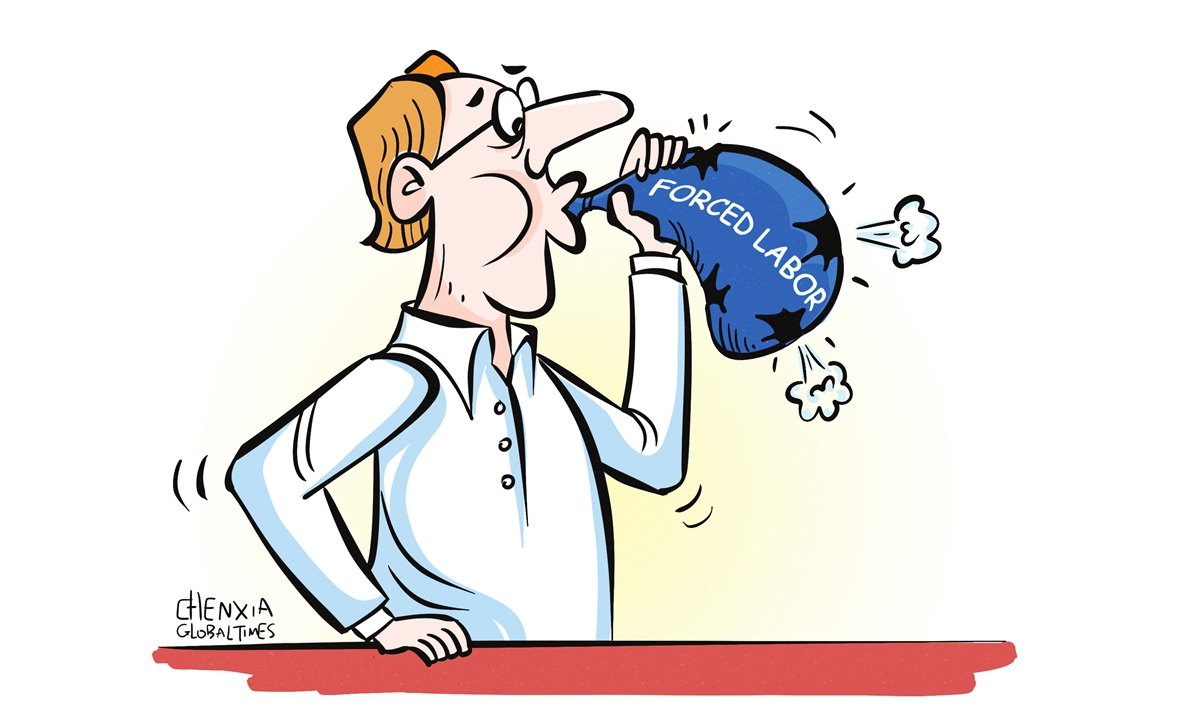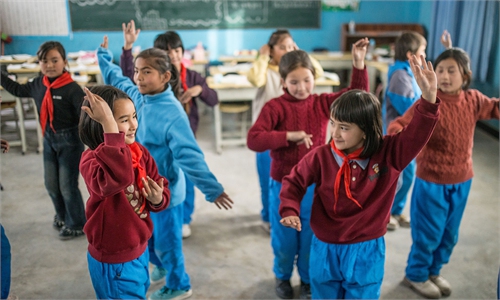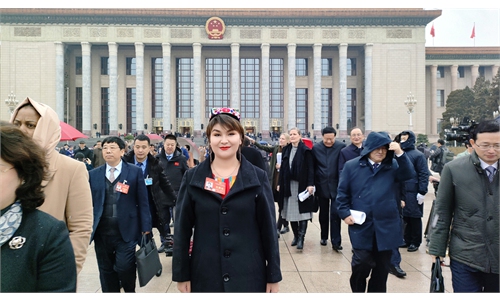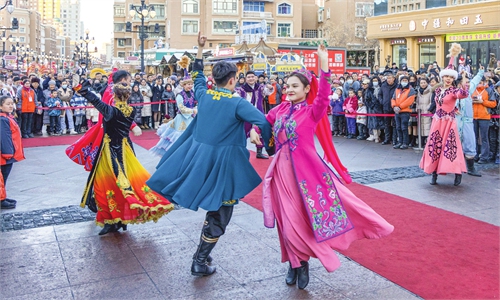
Illustration: Chen Xia/GT
The West's lies about Xinjiang-related issues have been exposed repeatedly recently. The so-called forced labor in Northwest China's Xinjiang Uygur Autonomous Region was debunked by deputies of the Xinjiang delegation during an open panel discussion on Thursday at the ongoing second session of the 14th National People's Congress.
Moreover, a German website last month, citing the research of Björn Alpermann, professor and chair of contemporary Chinese studies at Julius-Maximilians-University of Würzburg, stated that the US and the West's accusations of "forced labor" in China's Xinjiang have not been conclusively proven. It pointed out that they should not hastily put pressure on German companies such as automobile giant Volkswagen and chemical giant BASF, as this will not only fail to help the Uygurs in Xinjiang, but it will likely harm the people there.
At present, it has become crystal clear that certain US and Western politicians have ulterior motives behind criticizing the human rights situation in Xinjiang. Certain Western scholars and bloggers have begun to view China's Xinjiang fairly and objectively, and they have taken the initiative to expose the hypocrisy and cruelty of American and Western politicians. As the Xinjiang region continues to be stable and its economic development accelerates significantly, the lies about the so-called human rights issues in Xinjiang will inevitably be exposed.
It is a common tactic of some Western countries, including the US, to hype the so-called human rights issues in Xinjiang. This is not only a stereotype, but also a political conspiracy to "use Xinjiang to contain China." Some politicians in the US and the West disregard the well-being of the people of all ethnic groups in Xinjiang by promulgating the Uyghur Forced Labor Prevention Act (UFLPA). They actually aimed at prohibiting the export of all or part of the products made in Xinjiang in the disguise of protecting the human rights of Uyghurs, thereby isolating Xinjiang economically, rendering Xinjiang development opportunities, and depriving people of all ethnic groups in Xinjiang of the right to pursue a better life. In fact, cotton production in Xinjiang has already been fully mechanized, and forced labor is simply nonsense. The UFLPA was forcibly established on the basis of an untenable fact, highlighting the US' anxieties to the rise of China and its obvious psychological imbalance toward Xinjiang's development.
In recent years, not only has there been no "forced labor" in Xinjiang, but the real human rights situation has rapidly improved under new development opportunities. Over the past 10 years, Xinjiang's GDP has increased from 0.84 trillion yuan ($116.8 billion) in 2013 to 1.91 trillion yuan in 2023, and the per capita disposable income of residents has risen from 13,700 yuan in 2013 to 28,900 yuan in 2023. The number of tourists visiting Xinjiang has also surged from 48.6 million in 2012 to 265 million in 2023, reaching a record high.
At present, the money supply in the US and the West is generally falling, the unemployment rate is soaring, and the living standards of the people are declining. Against this economic and social background, politicians in the US and the West do not pay attention to the well-being of their own people, but overly "care" about people thousands of miles away. Their real purpose is to encircle and suppress China's development under the banner of "human rights defender," hindering the establishment of a more equitable and just world order. This kind of political maneuvering under the guise of "human rights" is increasingly despised and rejected by more people in the international community.
Whether the people's sense of gain, sense of happiness, and sense of security have been enhanced is the important criterion for testing the human rights situation in China. The so-called human rights that exclude survival and development can only be describes as an empty slogan. We do not interfere with others' understanding of human rights. The US and the West should learn to respect China's interpretation of human rights.
Wang Yan is a professor at Xinjiang Normal University. Zhang Yuanshi graduated from the PLA University of Foreign Languages. opinion@globaltimes.com.cn



